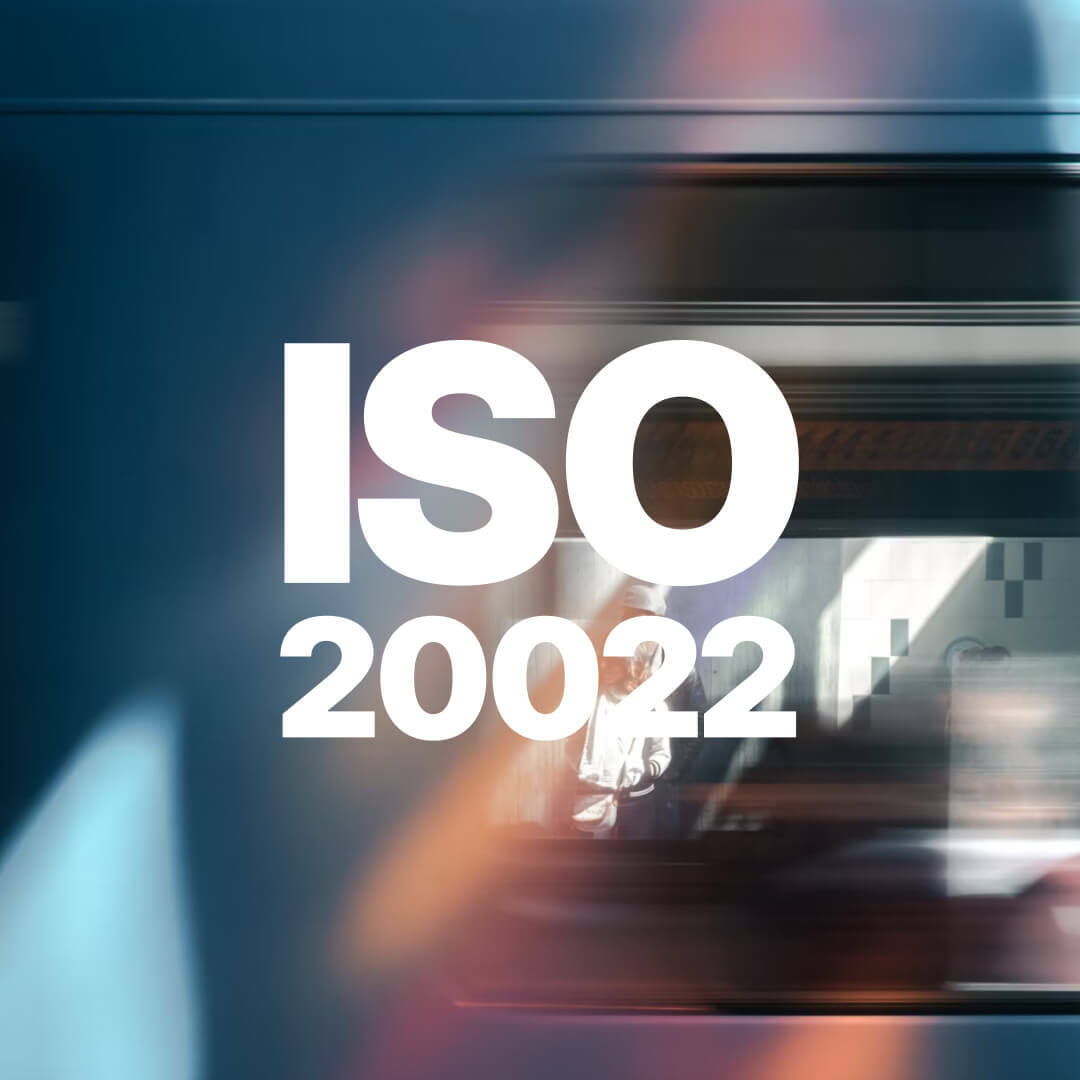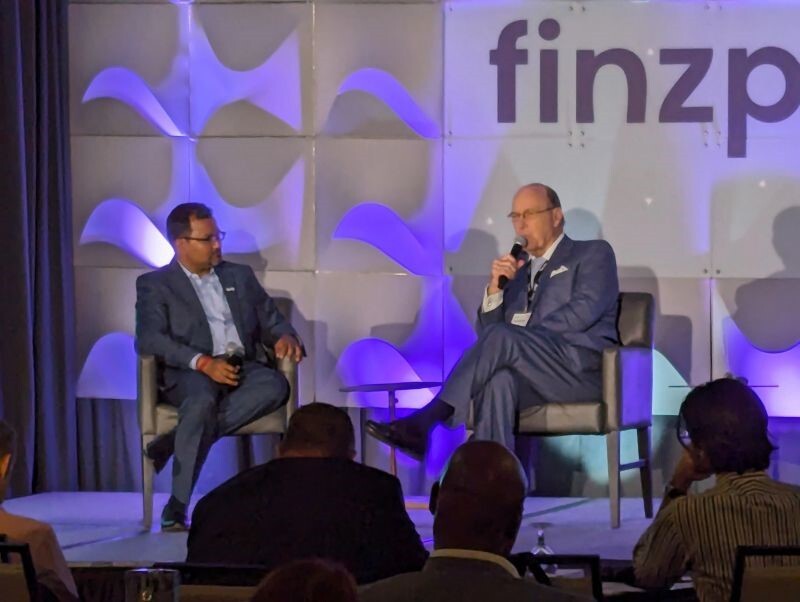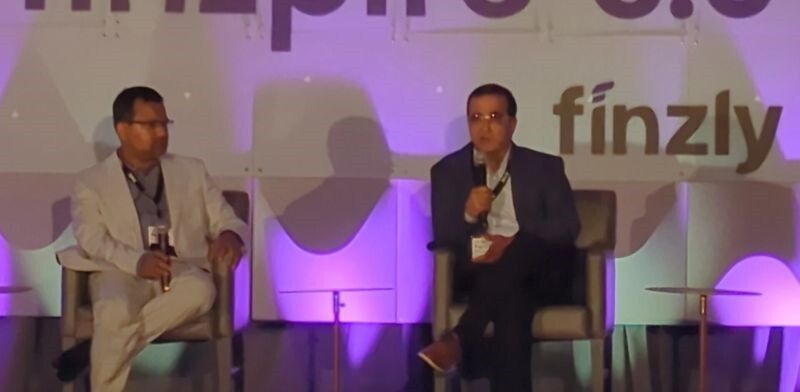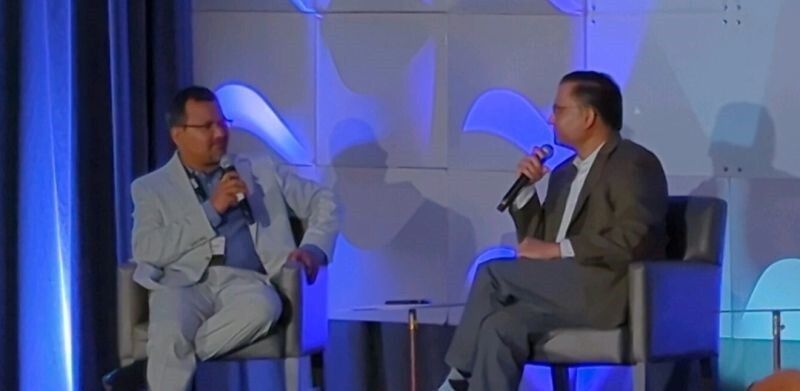
ISO 20022 Changes the Future of Financial Transactions

Discussing mission-driven corporate culture, technology, financial inclusion, and empathy-driven design.
The financial industry is weathering a whirlwind. Rapid technological advancements, evolving customer expectations, and increasing regulatory pressures are the cause. Three banking leaders — Chris Murphy, Tarun Dewan, and Suhas Reddy — addressed the topic at finzpire 3.0.
In conversations with Booshan Rengachari, they discussed navigating changes in the financial industry during the digital age. They focused on three pillars for successful transformation: focusing on customers, using new technology, and setting clear goals.
Chris Murphy is the Chairman and CEO of 1st Source Corporation and Chairman of 1st Source Bank in South Bend, Indiana. He has a unique perspective on the changes that financial institutions have undergone. Over time, financial institutions have evolved significantly with digital technology.
Murphy began his career at Citibank’s Project Paradise, which aimed to eliminate paper. and later joined the Payments Policy Board, with the goal of automating payments within a decade. As technology evolves, Murphy emphasizes that the core mission of banks — storing money and facilitating its exchange — remains unchanged.
However, the speed of change has rapidly increased, requiring that banks stay attuned to customer needs. This attunement underscores the enduring value of personal service, even in an era dominated by a digital transformation strategy. Financial institutions must blend business processes with personal relationships to improve customer experience. This sentiment echoes across the industry, highlighting that while operational models evolve, the mission of banking remains constant.
Murphy also emphasizes the mission-oriented nature of banking. Community banks sit at the heart of communities, impacting individuals, businesses, and society at large. This mission-driven approach is critical for fostering long-term relationships and driving sustainable growth.
Murphy thinks that a bank's growth depends on its deposit relationships and its ability to make outgoing payments. To meet customer needs, he stresses marrying digital products, traditional banking services, and a spirit of service.
I know our franchise value is in the payments. If we don't provide the ability to make payments, we don't get the deposit. So we may say we want the deposit, and then we'll transform payments. Well, the only reason people have deposits is to store money and then make payments. So payments are critical to us.
Murphy’s views align with those of Tarun Dewan, Head of Digital Channels and Payments at Frost Bank. Dewan highlights that understanding and respecting a company's culture is vital for a successful digital transformation. Frost Bank values both employees and customers and uses technology to enhance human connections rather than replace them. This approach fosters a collaborative environment, ensuring that transformation efforts align with the bank’s mission and values.

Both Murphy and Dewan recognize the critical role of technology in banking. For example, the necessity of real-time payments requires innovative technology. Also, the Federal Reserve is working to establish a competitive set of rails for universal access. That will need the latest technology.
Murphy and Dewan both believe that technological innovation should be carefully and painstakingly integrated to build sustainable growth during a digital transformation journey.
Dewan emphasizes the importance of learning from the past to drive technological advancements. For example, valuable hiring candidates can reflect on their failures and use those experiences to improve future projects. In addition, transformation requires a clear target state and alignment from all stakeholders. Effective collaboration and unity are essential for successful transformation and increasingly relevant in today’s fast-paced banking environment.
Suhas Reddy, Senior Vice President of Product Management at Pathward, had similar insights. He adds another layer to this discussion with his focus on human-centric design and financial inclusion. Reddy believes that the key to successful transformation lies in changing the way banks think and work. He advocates for a customer-first approach, where customer feedback and real-world testing drives product development.
There's a philosophy behind taking what we call relationship banking, and embedding that into digital experiences... First, it's empathy. You need to be able to walk a mile in the shoes of your users, your customers. You have to really know your customers and meet them where they are. Second you design for experiences- not for products, not for solutions. If you solve for the experience, you tend to cut across value streams, cut across bank silos, and solve it for how they perceive the journey.
Reddy, Dewan and Murphy all have similar beliefs on strategic leadership. Reddy emphasizes on empathy and emotional quotient (EQ) as critical leadership qualities. That aligns with Dewan’s views on the importance of understanding and motivating people.
All three leaders agree that changing culture is important for innovation and meeting customer needs. They believe that this includes decisions such as defining what a payment hub is. Reddy focuses on blending technology with human experience much like Murphy centers the importance of personal relationships in banking.
One of the significant challenges facing traditional banks is competition from fintechs. Murphy acknowledges that fintechs can more freely experiment with new ideas, while financial institutions must focus on sustainable growth. He points out that banks need to ensure they deliver value and earn returns for their shareholders. This involves careful planning and strategic investment in technology and customer service.
Reddy complements Murphy's insights with his focus on blending risk management with innovation. Reddy highlights the importance of embedding risk controls and fraud detection into new payment systems. Additionally, it is crucial to maintain a balance between innovation and safety in management systems. This balance is crucial for banks to stay competitive while ensuring they meet regulatory requirements and protect customer interests.

All three leaders agree on the importance of collaboration and communication in driving transformation. Dewan stresses the need for open dialogue and feedback, both within the organization and with customers. He believes that defining clear objectives and maintaining alignment across teams is critical for successful transformation.
Murphy and Reddy also highlight the importance of involving various stakeholders in the transformation process. Murphy emphasizes the need for smart, service-oriented individuals who can navigate the complexities of the banking industry. Reddy advocates for a culture of innovation and empathy, where customer needs drive strategic decisions around products and services.
Chris Murphy, Tarun Dewan, and Suhas Reddy underscore the complicated nature of transformation in the banking industry. The foundation of successful transformation lies in a mission-driven approach, customer-centric design, and effective collaboration. By combining these elements with new technology, banks can overcome today's financial challenges and become leaders in change.
